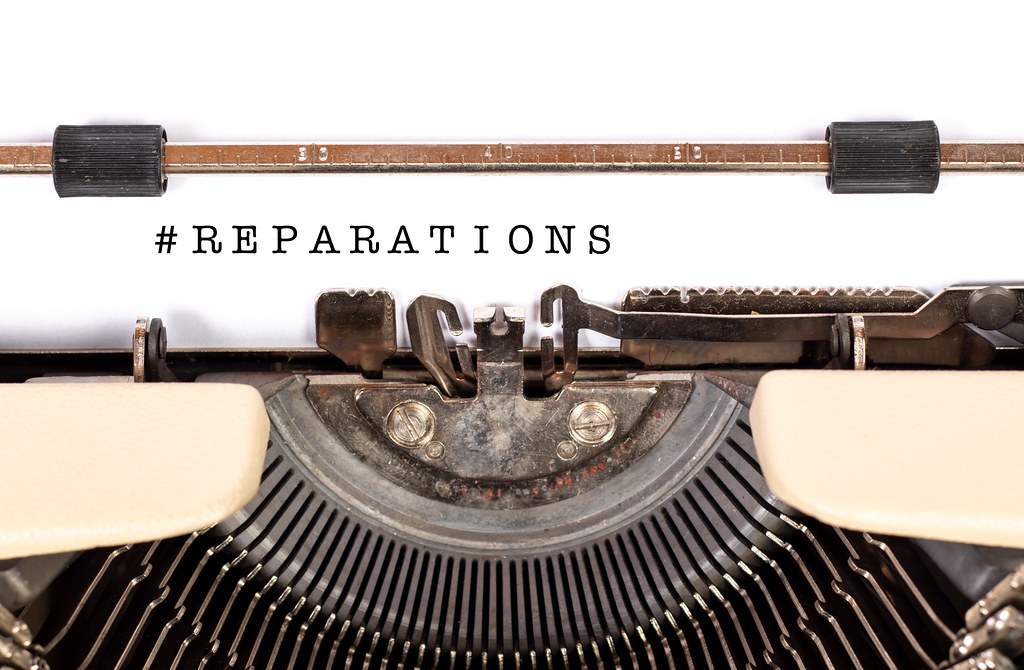A Christian Case Against Slavery Reparations
Slavery reparations are a popular political move right now. In fact, the newest California budget includes 12 million for reparations. This generous move, which is about $6 per black resident of California, is the latest in political maneuvering to seize on the idea that reparations are the way forward to solving poor race relations.

This conversation has really ignited over the last 5 years. When the culture takes aim at a topic, the Christian needs to be equipped to think through the issues from a biblical worldview. On the issue of whether slavery reparations are to be implemented, I think there are a couple issues to consider.
First, slavery reparations would be a logistical nightmare.
Although the issue is often painted as blacks needing to receive reparations and whites needing to pay reparations, that is a gross oversimplification. If the actual issue is slavery, one needs to consider the numerous black slaveholders. Should their black descendants be required to pay reparations? According to Darrell Harrison, a co-host on the Just Thinking podcast, he can actually trace his lineage to an African tribe that captured and sold other blacks to the European slave trade. So, his descendants were not involved directly in America, but they were involved in Africa. How should that situation be treated? Clearly it is not simply a black and white issue!
Further, what about my friends who come from interracial marriages? Are they entitled to reparations, or must they pay since they are 50-50? What about those African-Americans who have immigrated to America after slavery was already outlawed? What about the post-civil war European immigrants? Both of these groups had nothing to do with American slavery. Clearly skin color is an insufficient gauge for guilt or entitlement.
There would have to be a different way to determine guilt and entitlement for reparations to be possible. Perhaps DNA tests could contribute, but there are problems with invasion of privacy laws—who would want to risk the government having more data on them? Additionally, a simple DNA test cannot determine guilt. Just because you come from a certain region or family doesn’t mean you supported slavery. In the civil war there were numerous families that split, brother fighting brother in the civil war. Your bloodline does not determine your actions or beliefs, and there are numerous examples of families splitting over these issues.
Even from such a simple vantage point, it is obvious that slavery reparations cannot work. They are illogical and impossible to implement logistically.
Second, and more importantly, from a biblical standpoint, slavery reparations are unjust.
Fathers shall not be put to death because of their children, nor shall children be put to death because of their fathers. Each one shall be put to death for his own sin.
Deut 24:16
Behold, all souls are mine; the soul of the father as well as the soul of the son is mine: the soul who sins shall die.
Ezek 18:4
The soul who sins shall die. The son shall not suffer for the iniquity of the father, nor the father suffer for the iniquity of the son. The righteousness of the righteous shall be upon himself, and the wickedness of the wicked shall be upon himself.
Ezek 18:20
What these verses spell out in detail is the biblical principle of culpability. There is no guilt by association. There is no culpability that passes down generation to generation. Only those who actively participate in wickedness are guilty.
The present application of this principle to the discussion of slavery reparations is quite evident. Even if it was 100% demonstrable that someone was a direct descendant of a slave owner, he or she is not culpable of the actions of a relative. It is not justice if one seeks to hold the crimes of the father against the son.
Third, the result of encouraging slavery reparations is division.
Slavery reparations can never work logistically. The push for reparations by politicians should be viewed for what it is—the left’s attempt to pander to a voting demographic. Besides the illogicality of trying to implement reparations, this kind of thinking leads to something even more dangerous. The consequence of encouraging individuals to feel they are entitled to reparations from others in the society is division and greed—two characteristics which destroy relationships and society. If I think I am entitled to something which I am not given, I am immediately tempted to view the one who is withholding it as my enemy. I will view them minimally with annoyance, but more likely with hatred. Thus, in the end, the discussion of slavery reparations will result in a cultural division between whites and blacks. What is more sad is that some of this mindset has crept into the church—the very entity which is to exist without any division, showing unity in Christ!
The debate on whether reparations are justified will never go away while sinners live on the earth. It will continue this year and well into the next. The Christian must be prepared to think through slavery reparations and give much needed guidance and wisdom to others who are trying to think through it.
photo credit: trendingtopics #Reparations (Trending Twitter Topics from 18.06.2019) via photopin (license)
